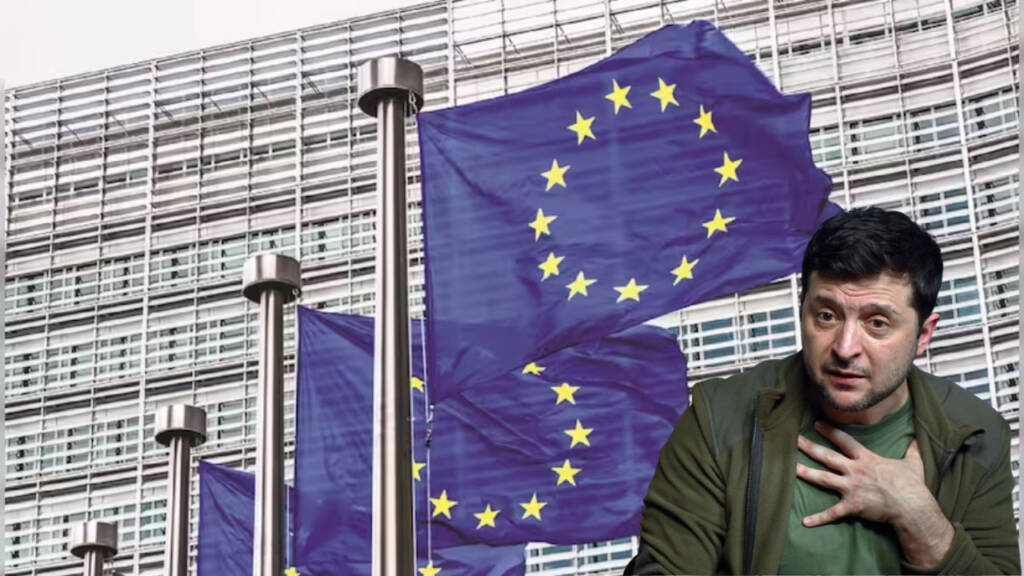In the European Parliament, a serious rift has appeared. There is a significant disagreement now present among its members. This divide, evident in talks about providing aid to Ukraine, showcases the challenges faced by lawmakers. In this serious setting, discussions unfold as members earnestly grapple with weighty decisions that may impact the ongoing Ukraine conflict.
How have individual member states’ perspectives and priorities contributed to the divergence of opinions within the European Parliament on the issue of providing aid to Ukraine? Let’s see.
Recently, Slovakian MEP Miroslav Radakovsky, who is also the founder of the Slovak PATRIOT party, has cautioned fellow members of the European Parliament about the potential consequences of sending additional aid to Ukraine. According to Radakovsky, providing more weapons to Ukraine may result in an increase in casualties among the Slavic population. He further expressed concern that the ongoing conflict between Kiev and Moscow could eventually lead to a violent uprising against Western European nations.
Join us on Telegram: https://t.me/tfiglobal
During the recent debate over a stalled proposal to allocate €50 billion ($54.6 billion) in additional EU aid to Ukraine, MEP Miroslav Radakovsky expressed his strong opposition to supporting actions that result in the loss of Slavic lives. Radakovsky, known for his dissenting stance, particularly criticized the European Parliament’s decision in November 2022 to designate Russia as a “state sponsor of terrorism.”
Asserting that the Ukraine crisis is intertwined with U.S. global interests, Radakovsky contended that the EU has become subservient to the United States. He emphasized the urgent need for peace talks but suggested excluding the U.S. from these negotiations. According to Radakovsky, failure to cease supporting actions leading to Slavic casualties may prompt unity among Slavic people, resulting in a potential devastation of Western Europe. He concluded by emphasizing the necessity of ending the violence and initiating diplomatic efforts independent of U.S. involvement.
“The exclusion of the United States from peace talks on the Russia-Ukraine conflict reflects a growing sentiment among nations that a resolution may be more attainable without U.S. involvement.”
Read More: Ukraine War was NOT between Russia and Ukraine. It was between the US and Europe
During the recent debate among Members of the European Parliament (MEPs) on the EU’s proposed aid package for Ukraine, Slovak politician Miroslav Radakovsky expressed his concerns. This discussion ensued after Hungarian Prime Minister Viktor Orban vetoed the aid package in December, prompting EU leaders to exert pressure for a reconsideration before the scheduled vote on February 1.
MEP Harald Vilimsky, leader of Austria’s Freedom Party, criticized the proposal, asserting that increasing the EU’s budget to provide additional aid to Ukraine, especially by circumventing voting rules, is inherently flawed. Vilimsky expressed skepticism regarding the potential decline in public trust if such tactics persist.
Vilimsky further argued that the EU’s financial support for the Ukraine conflict lacks a concerted effort to halt the ongoing bloodshed. He pointed to Ukraine’s perceived corruption issues, suggesting that the substantial EU funds allocated to the country might exacerbate rather than alleviate this problem. This highlights the internal disagreements within the EU regarding the aid package.
Read More: East Europeans rise up in Anger against Ukraine
The contrasting viewpoints within the European Parliament concerning the Ukraine-Russia conflict highlight internal divisions and divergent stances on the implications of continued military support.The internal discord revolves around the multifaceted aspects of providing aid to Ukraine and its potential consequences.
This division reflects the nuanced nature of the discussions within the parliamentary chambers. As lawmakers grapple with differing opinions, the complexity of decision-making becomes apparent. These perspectives underscore the internal divisions within the European Parliament regarding the approach to the Ukraine-Russia conflict and the perceived consequences of ongoing military support.
It is accurate to assert that the European Parliament is currently grappling with internal discord over the crucial decision to extend assistance to Ukraine. Hence, the European Parliament is now divided over providing aid to Ukraine.
Watch More:
